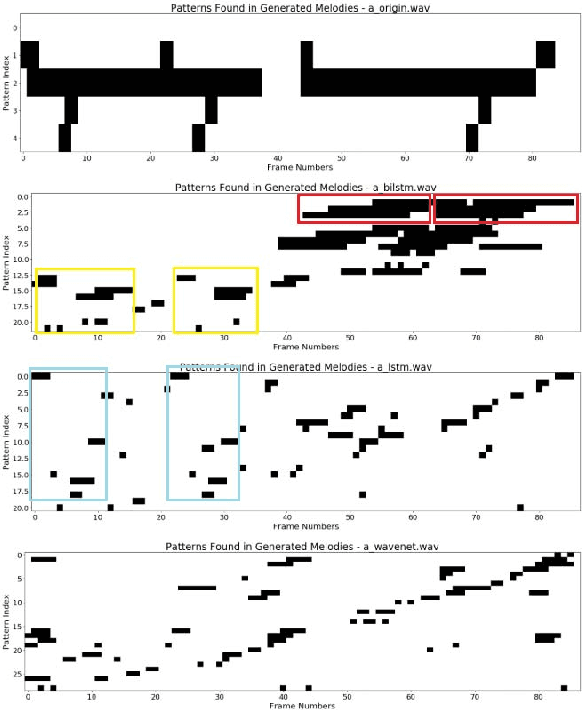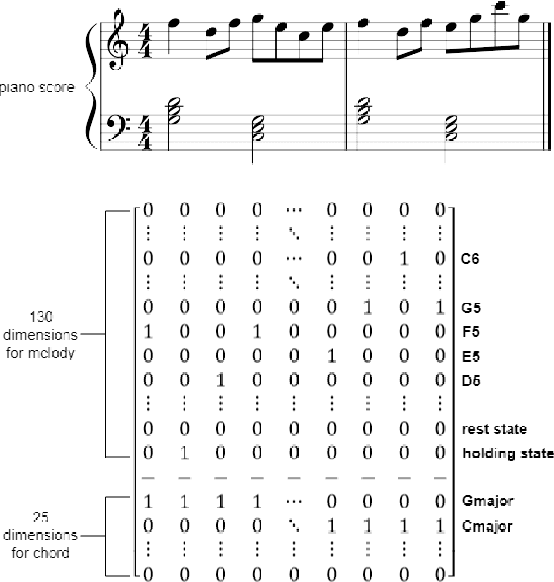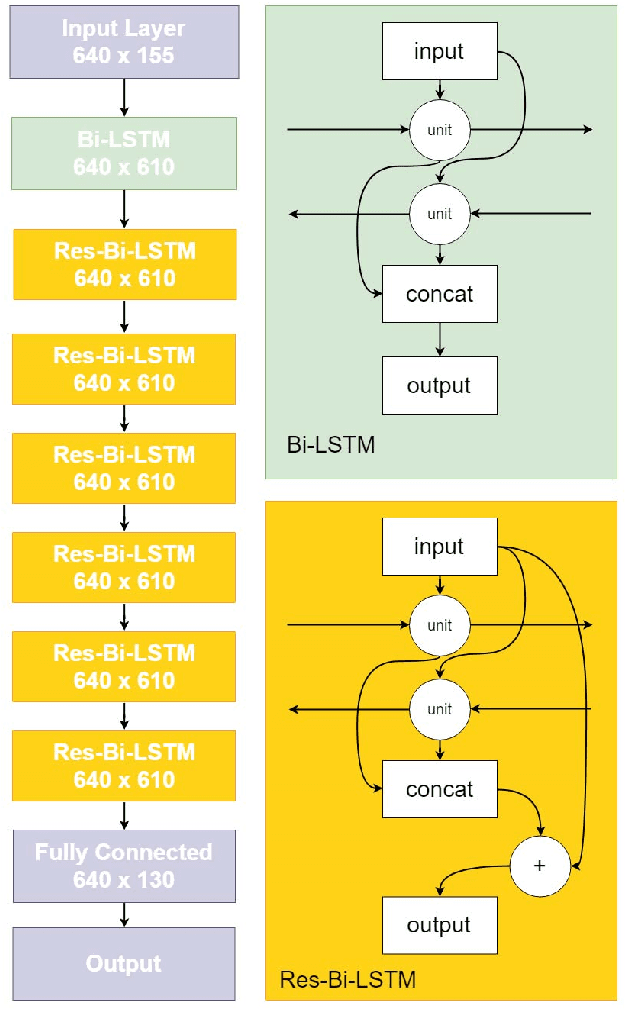The Effect of Explicit Structure Encoding of Deep Neural Networks for Symbolic Music Generation
Paper and Code
Nov 20, 2018



With recent breakthroughs in artificial neural networks, deep generative models have become one of the leading techniques for computational creativity. Despite very promising progress on image and short sequence generation, symbolic music generation remains a challenging problem since the structure of compositions are usually complicated. In this study, we attempt to solve the melody generation problem constrained by the given chord progression. This music meta-creation problem can also be incorporated into a plan recognition system with user inputs and predictive structural outputs. In particular, we explore the effect of explicit architectural encoding of musical structure via comparing two sequential generative models: LSTM (a type of RNN) and WaveNet (dilated temporal-CNN). As far as we know, this is the first study of applying WaveNet to symbolic music generation, as well as the first systematic comparison between temporal-CNN and RNN for music generation. We conduct a survey for evaluation in our generations and implemented Variable Markov Oracle in music pattern discovery. Experimental results show that to encode structure more explicitly using a stack of dilated convolution layers improved the performance significantly, and a global encoding of underlying chord progression into the generation procedure gains even more.
 Add to Chrome
Add to Chrome Add to Firefox
Add to Firefox Add to Edge
Add to Edge